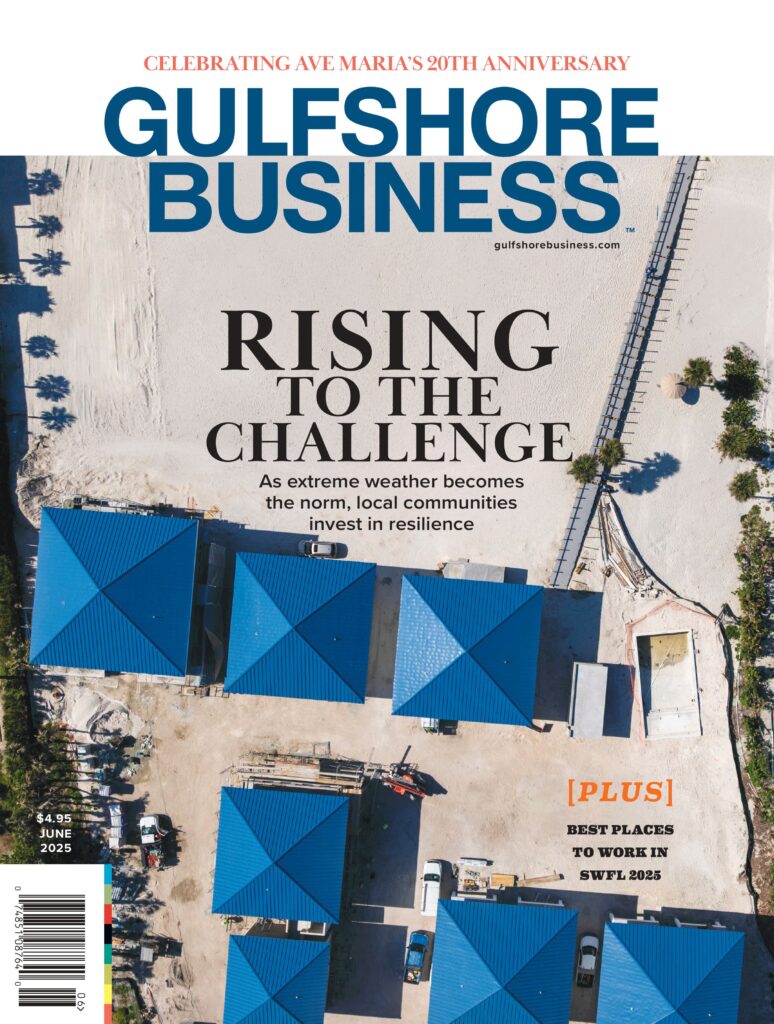Food trucks have become increasingly popular due to their convenience, affordability and unique offerings, especially for employees seeking a quick breakfast or lunch at businesses and commercial areas.
As a result, Collier County is amending its land-development code to allow permanent mobile food-dispensing vehicles, including food trucks, at certain locations, including commercial areas and county parks.
The Board of County Commissioners on Jan. 14 voted unanimously to amend its code and will hold a second public hearing Jan. 28 to finalize the change. The amendment required a super majority vote, four of five commissioners. It was passed with a revision requested by Commissioner Bill McDaniel Jr., who wanted it to require a conditional-use application, and not to be allowed “by right” in certain areas.
“There are people that live in proximity to industrial and public use and PUDs … that need to be able to have a voice,” McDaniel said of planned-unit developments, asking that staff review applications individually.
 County Attorney Jeff Klatzkow agreed commissioners could make that revision, noting the change would protect surrounding communities. Before that change, a conditional-use application was only required for certain areas, or if a food truck park was selling alcohol or offering amplified outdoor entertainment.
County Attorney Jeff Klatzkow agreed commissioners could make that revision, noting the change would protect surrounding communities. Before that change, a conditional-use application was only required for certain areas, or if a food truck park was selling alcohol or offering amplified outdoor entertainment.
The amendment applies to 4,737 parcels countywide, including regional parks, and parcels within several zoning districts: industrial, business park, public use, commercial intermediate, general commercial and heavy commercial.
As of Oct. 1, 2024, county records say, 17 food truck-zoning certificates have been issued. Approved permits include Celebration Park Naples, Ankrolab Brewing Co., Mother Trucker Chicago Cafe and the Collier Area Transit station in Immokalee.
State Department of Business & Professional Regulation records show that in District 7, which includes Collier, Lee and nine other counties, there were 1,208 mobile food-dispensing vehicle licenses as of this month, including food trucks, in addition to 52 hot dog cart licenses.
Planning and Zoning Director Mike Bosi noted that regardless of the zoning district, food trucks will be allowed in connection with temporary-use permits and special events for up to 28 days yearly.
State law allows food trucks affiliated with restaurants to operate outside restaurants.
The county began working on guidelines in October 2021, after the county Board of Zoning Appeals prohibited permanent mobile food truck applications that involve other entertainment activities, such as a bar, dance pavilion, music and outdoor seating.
The appeal filed by FCC Beach & Yacht LLC involved Isles of Capri Food Truck Park. The board expressed concerns over the effects on neighboring properties, including noise, glare, odor, traffic and buffer setback requirements.
 The board directed planning staff to bring back a land-development code amendment to allow for a conditional use of multiple food trucks within certain zoning districts on specific parcels, and asked that they set parameters, including hours of operation, traffic volume, parking requirements and to look at best practices.
The board directed planning staff to bring back a land-development code amendment to allow for a conditional use of multiple food trucks within certain zoning districts on specific parcels, and asked that they set parameters, including hours of operation, traffic volume, parking requirements and to look at best practices.
That month, county commissioners also agreed to deny Isles of Capri Food Truck Park’s application and directed staff to develop a policy.
Staff reviewed regulations in 20 communities statewide, including five counties and five states — Texas, California, North Carolina, Arkansas and Oregon. The process went through the Development Services Advisory Board and its Land Development Review subcommittee, as well as the Planning Commission. The Greater Naples Fire Rescue District also suggested changes and county commissioners provided more input last year.
To operate, applicants must pay up to $10,140 in county fees, including a $4,000 conditional-use application. The amendment defined permanent mobile food-dispensing vehicles as nontransient, meaning they don’t stop temporarily at various locations for less than two hours.
The standards include parking and restroom requirements, maximum intensity, trash receptacles, hours of operation and appropriate locations. Conditional-use applications require notifying nearby properties about the application, a neighborhood information meeting and a public hearing, usually before the county hearing examiner.
They are not permitted in a PUD unless the PUD specifically lists them as a permissible use, as Emmanuel Lutheran Church did. To add that use to a PUD requires an amendment, a neighborhood information meeting, a Planning Commission hearing and two public hearings before the Board of County Commissioners that require a supermajority vote.





